Chancellor Merkel may ban fossil-fuel vehicles: Germany will have to follow the lead of France and Great Britain in banning diesel vehicles, said Chancellor Angela Merkel 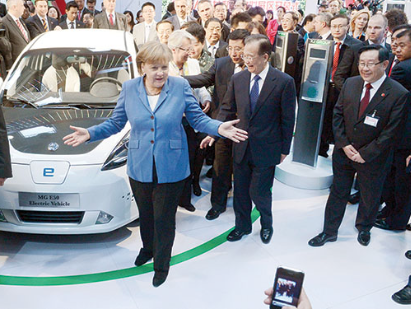 during media interviews this week; and that will likely apply to gasoline-powered vehicles as well. Merkel wouldn’t name the exact year, but said that the UK And France’s plans to ban the sale of new vehicles with internal combustion engines starting in 2040 “were the right approach.” The pressure is on Merkel and auto industry executives as the Sept. 24 election approaches. Merkel is seeking her fourth term in the office, and has been called upon to make sure auto executives respond ethically to the vehicle emissions scandal. In a YouTube interview, she called on local government officials to meet with her on September 4 to discuss toxic emissions.
during media interviews this week; and that will likely apply to gasoline-powered vehicles as well. Merkel wouldn’t name the exact year, but said that the UK And France’s plans to ban the sale of new vehicles with internal combustion engines starting in 2040 “were the right approach.” The pressure is on Merkel and auto industry executives as the Sept. 24 election approaches. Merkel is seeking her fourth term in the office, and has been called upon to make sure auto executives respond ethically to the vehicle emissions scandal. In a YouTube interview, she called on local government officials to meet with her on September 4 to discuss toxic emissions.
Shared mobility is stepping stone to AVs: The current hype about autonomous vehicle is accompanied by a surge of interest from shared mobility operators. Ride-hailing companies such as Uber, Lyft, and Didi are investing heavily into autonomous vehicle technology. Earlier this year, Uber announced its partnership with Daimler to bring self-driving technology to the market. Didi has opened up an artificial intelligence lab in Silicon Valley. Lyft’s collaboration with investor General Motors will include self-driving Chevy Bolt test runs,. This month, Lyft announced an investment coming in from Jaguar Landrover to bring autonomous connected vehicles on the road. And read all about the upcoming Meeting of the Minds conference, being held October 23-25 in Cleveland.
Natural gas isn’t going away: A Bloomberg analysis piece points to natural gas vehicles having failed in a race won by cheap gasoline prices and growth in electric vehicle sales. While oil and gas industry leader T. Boone Pickens was citied as championing the 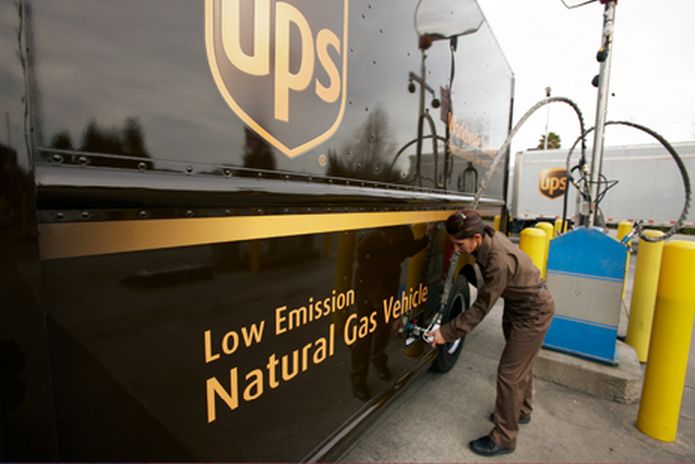 alternative fuel since about 2008, the results haven’t gone in that direction. The article cites cheap gasoline prices and growth in EV sales, including orders being placed on the Tesla Model 3, as evidence for its argument. While the natural gas-powered Honda Civic was taken off the market a few years ago, NGVs continue to play an important role for fleets converting over to clean fuel options. Transit and city fleets are bringing them in with a few major corporate fleets like UPS, Ryder System, and AT&T, continuing to acquire them and install more CNG fueling stations. Ford and GM continue to add the CNG option to their pickup trucks and van offerings. Renewable natural gas is also supporting the clean fuel and its infrastructure, as more fleets start using RNG. Liquefied natural gas is also playing a role in adoption of the fuel in various transport sectors.
alternative fuel since about 2008, the results haven’t gone in that direction. The article cites cheap gasoline prices and growth in EV sales, including orders being placed on the Tesla Model 3, as evidence for its argument. While the natural gas-powered Honda Civic was taken off the market a few years ago, NGVs continue to play an important role for fleets converting over to clean fuel options. Transit and city fleets are bringing them in with a few major corporate fleets like UPS, Ryder System, and AT&T, continuing to acquire them and install more CNG fueling stations. Ford and GM continue to add the CNG option to their pickup trucks and van offerings. Renewable natural gas is also supporting the clean fuel and its infrastructure, as more fleets start using RNG. Liquefied natural gas is also playing a role in adoption of the fuel in various transport sectors.




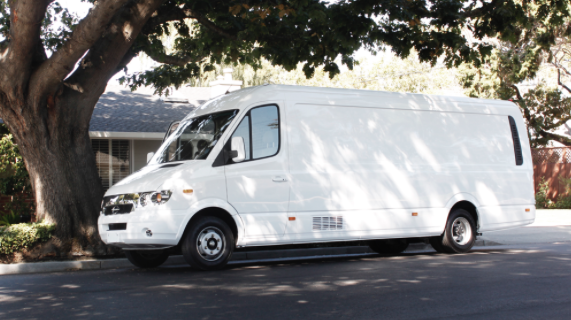 all-electric commercial vans will start being delivered later this year. The company is co-owed by Hong Kong-based FDG Electric Vehicles Limited. FDG owns other EV companies, including Prevok, a Chinese joint venture with Smith Electric Vehicles. Chanje will tap into FDG’s EV and lithium ion battery manufacturing resources. The large electric van will be sold to fleets “at a previously unavailable scale and price,” and will be “purpose-built to be a long-life truck.”
all-electric commercial vans will start being delivered later this year. The company is co-owed by Hong Kong-based FDG Electric Vehicles Limited. FDG owns other EV companies, including Prevok, a Chinese joint venture with Smith Electric Vehicles. Chanje will tap into FDG’s EV and lithium ion battery manufacturing resources. The large electric van will be sold to fleets “at a previously unavailable scale and price,” and will be “purpose-built to be a long-life truck.”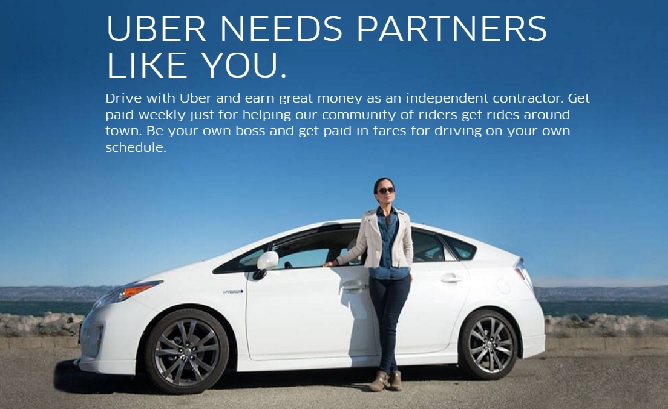 University of Michigan Transportation Research Institute, Texas A&M Transportation Institute, and Columbia University. Research was done in Austin, Texas, where ride-hail services like Uber and Lyft pulled services last year due to a local ordinance. The study found that 41% of those surveyed turned to their own vehicle after Uber and Lyft left the market; and 9% actually bought an additional car for their transportation needs. Three percent switched over to public transit; and 42% went over to another, smaller transportation networking company.
University of Michigan Transportation Research Institute, Texas A&M Transportation Institute, and Columbia University. Research was done in Austin, Texas, where ride-hail services like Uber and Lyft pulled services last year due to a local ordinance. The study found that 41% of those surveyed turned to their own vehicle after Uber and Lyft left the market; and 9% actually bought an additional car for their transportation needs. Three percent switched over to public transit; and 42% went over to another, smaller transportation networking company.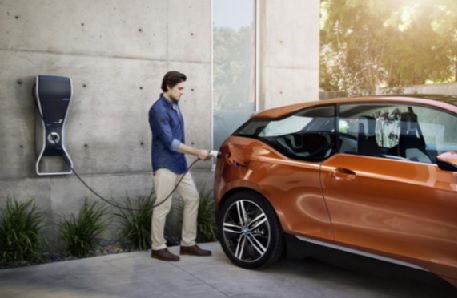 with the new plug-in hybrid Mini. Plug-in vehicles made up 4.5% of marketshare for all of the company’s vehicle sold last month. For the year, the automaker has delivered 50,711 plug-in vehicles, up a huge gain of 74.8% for the year.
with the new plug-in hybrid Mini. Plug-in vehicles made up 4.5% of marketshare for all of the company’s vehicle sold last month. For the year, the automaker has delivered 50,711 plug-in vehicles, up a huge gain of 74.8% for the year.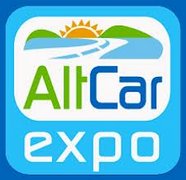 managers, sustainability directors, business owners, legislators, and others attending
managers, sustainability directors, business owners, legislators, and others attending 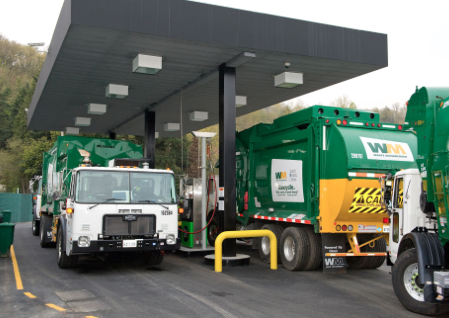 are open to the public, to fuel its 6,000 unit fleet of natural gas trucks. It’s the largest natural gas-powered fleet of its kind in North America. The company is moving toward its goal of reducing carbon dioxide 15% from its fleet by 2020. Much of the fuel being used is renewable natural gas, which comes from waste matter stored in landfills. “We invest in building our own fueling infrastructure to refuel our vehicles, while making CNG available to other commercial fleets and individuals,” said Marty Tufte, Waste Management corporate fleet director.
are open to the public, to fuel its 6,000 unit fleet of natural gas trucks. It’s the largest natural gas-powered fleet of its kind in North America. The company is moving toward its goal of reducing carbon dioxide 15% from its fleet by 2020. Much of the fuel being used is renewable natural gas, which comes from waste matter stored in landfills. “We invest in building our own fueling infrastructure to refuel our vehicles, while making CNG available to other commercial fleets and individuals,” said Marty Tufte, Waste Management corporate fleet director. on the matter. It was part of a four-day road trip to raise $1.5 billion to pay for production of the Model 3 through junk-rated bonds. The company is spending a lot of cash on building out the Fremont, Calif., assembly plant, and battery packs at its Gigafactory in Nevada. The company burned through a record $1.16 billion in cash during the second quarter. It looks good for Tesla hitting the $1.5 billion this week.
on the matter. It was part of a four-day road trip to raise $1.5 billion to pay for production of the Model 3 through junk-rated bonds. The company is spending a lot of cash on building out the Fremont, Calif., assembly plant, and battery packs at its Gigafactory in Nevada. The company burned through a record $1.16 billion in cash during the second quarter. It looks good for Tesla hitting the $1.5 billion this week.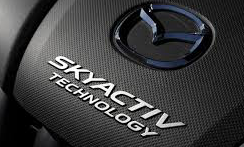 gnition. That will bring 20% to 30% more fuel efficiency than current models on the market with Mazda’s Skyactiv technology. The corporate sustainability campaign will shoot for 2019 to roll out the new Skyactiv-X and its first electric vehicle. That could be coordinated with its Toyota alliance for jointly developing EVs. Sustainable Zoom-Zoom is structured around reducing corporate carbon dioxide emissions, well-to-wheel, 50% by 2030 and 90% by 2050.
gnition. That will bring 20% to 30% more fuel efficiency than current models on the market with Mazda’s Skyactiv technology. The corporate sustainability campaign will shoot for 2019 to roll out the new Skyactiv-X and its first electric vehicle. That could be coordinated with its Toyota alliance for jointly developing EVs. Sustainable Zoom-Zoom is structured around reducing corporate carbon dioxide emissions, well-to-wheel, 50% by 2030 and 90% by 2050.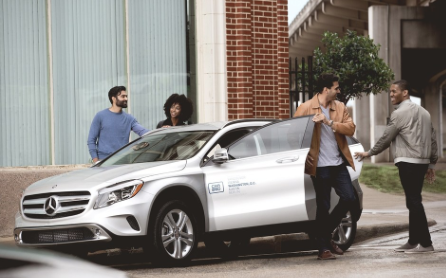 increased 40% year-over-year in the first half of 2017 compared to a year prior. That’s taking place at 11 North American locations with 4.5 million trips taken so far this year. Members are spending 33% more time traveling this year than last. The company is in discussions with other cities about car2go opening shop there, with the company emphasizing the environmental and economic benefits of using its one-way carsharing model.
increased 40% year-over-year in the first half of 2017 compared to a year prior. That’s taking place at 11 North American locations with 4.5 million trips taken so far this year. Members are spending 33% more time traveling this year than last. The company is in discussions with other cities about car2go opening shop there, with the company emphasizing the environmental and economic benefits of using its one-way carsharing model.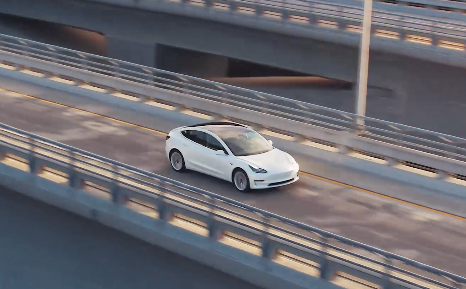 cancellations came from people burning out over having to wait an hour and a half to complete the order process online. During a quarterly earnings call yesterday, the company announced that it had burned through about $1.16 billion in cash during Q2 to keep the Model 3 factory on schedule along with Gigafactory battery production. Stocks closed yesterday with a 7.4% jump to $350.13 as investors remained enthusiastic.
cancellations came from people burning out over having to wait an hour and a half to complete the order process online. During a quarterly earnings call yesterday, the company announced that it had burned through about $1.16 billion in cash during Q2 to keep the Model 3 factory on schedule along with Gigafactory battery production. Stocks closed yesterday with a 7.4% jump to $350.13 as investors remained enthusiastic.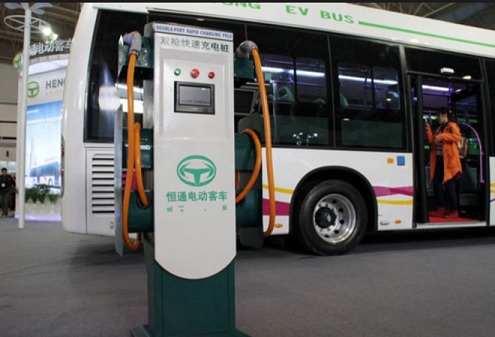 property and honoring trade practices between the nations. Senate Democratic leader Chuck Schumer was one of the three. Trump has been pressing China to cut steel production to cut oversupply and to rein in North Korea’s missile testing program. The Obama administration, while also concerned over high tariffs and equitable trade, had established strong relations with the country on vehicle electrification and renewable energy goals. Now it’s up to California and Gov. Jerry Brown to keep those goals going – electric cars, buses, and trucks. China is likely to adopt some version of California’s zero emission vehicle policy by the end of the year. But relations between the two nations could be a stumbling block.
property and honoring trade practices between the nations. Senate Democratic leader Chuck Schumer was one of the three. Trump has been pressing China to cut steel production to cut oversupply and to rein in North Korea’s missile testing program. The Obama administration, while also concerned over high tariffs and equitable trade, had established strong relations with the country on vehicle electrification and renewable energy goals. Now it’s up to California and Gov. Jerry Brown to keep those goals going – electric cars, buses, and trucks. China is likely to adopt some version of California’s zero emission vehicle policy by the end of the year. But relations between the two nations could be a stumbling block.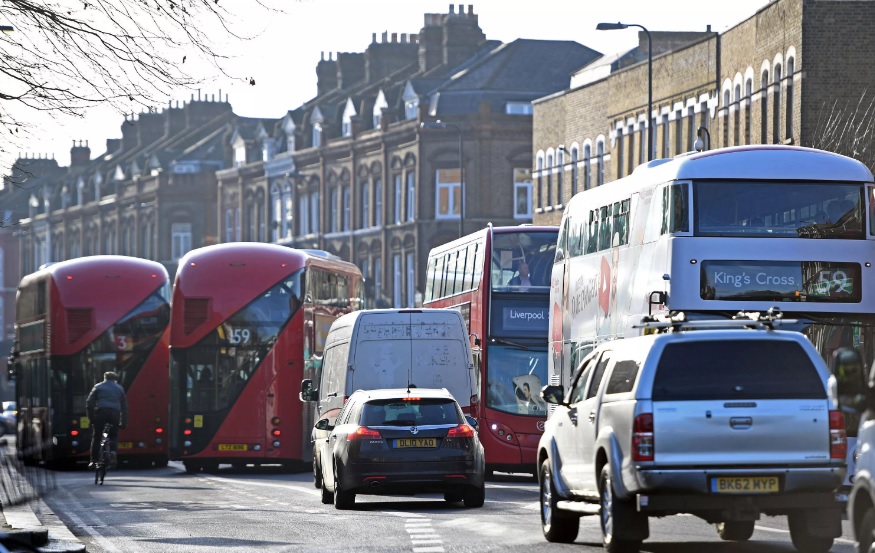 follows France, which decided to ban all fossil-fuel powered vehicles by 2040. The mayors of London, Paris, Madrid, Mexico City, and Athens are developing their own policies for clean air and climate change, would like to ban diesel vehicles. The British government has faced legal pressure from a series of lawsuits, and the national government has been taking steps to scrap diesel-powered cars. Nearly 200 million pounds (about $261 million) will go to local governments in the UK to help them restrict access by diesel-powered vehicles to extremely polluted roads. Battery electric vehicles will probably be the route chosen by the national government to replace gasoline and diesel powered cars.
follows France, which decided to ban all fossil-fuel powered vehicles by 2040. The mayors of London, Paris, Madrid, Mexico City, and Athens are developing their own policies for clean air and climate change, would like to ban diesel vehicles. The British government has faced legal pressure from a series of lawsuits, and the national government has been taking steps to scrap diesel-powered cars. Nearly 200 million pounds (about $261 million) will go to local governments in the UK to help them restrict access by diesel-powered vehicles to extremely polluted roads. Battery electric vehicles will probably be the route chosen by the national government to replace gasoline and diesel powered cars.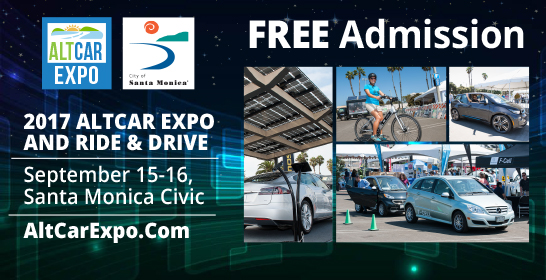
 reported Friday. The other five would be the Buick LaCrosse, Cadillac CT6, Cadillac XTS, Chevrolet Impala, and Chevrolet Sonic. GM declined to comment. Pressure from shareholders to increase sales may have GM tipping more to pickups, crossovers, and SUVs. It would be a shame to see, with the redesigned Volt doing well in sales – No. 3, close behind the Tesla Model S in the first six months of U.S. sales.
reported Friday. The other five would be the Buick LaCrosse, Cadillac CT6, Cadillac XTS, Chevrolet Impala, and Chevrolet Sonic. GM declined to comment. Pressure from shareholders to increase sales may have GM tipping more to pickups, crossovers, and SUVs. It would be a shame to see, with the redesigned Volt doing well in sales – No. 3, close behind the Tesla Model S in the first six months of U.S. sales.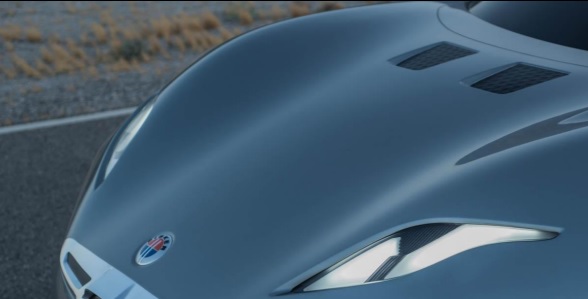 upcoming EMotion sporty, luxury sedan. The company would have had to focus entirely on Fisker and let other client projects slip away, which won’t work for the company to do, said Jack Kavanaugh, chairman and acting CEO of Nanotech Energy. That JV had started with the Henrik Fisker starting his new electric car company in October. The automaker will continue to “work with Nanotech on the applications of graphene,” but it will use battery cells provided by LG Chem for the EMotion, Fisker said.
upcoming EMotion sporty, luxury sedan. The company would have had to focus entirely on Fisker and let other client projects slip away, which won’t work for the company to do, said Jack Kavanaugh, chairman and acting CEO of Nanotech Energy. That JV had started with the Henrik Fisker starting his new electric car company in October. The automaker will continue to “work with Nanotech on the applications of graphene,” but it will use battery cells provided by LG Chem for the EMotion, Fisker said.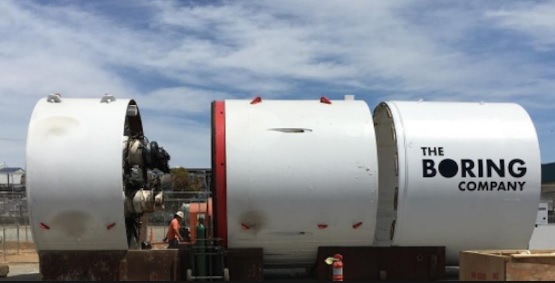 Washington, D.C. “Just received verbal govt approval for The Boring Company to build an underground NY-Phil-Balt-DC Hyperloop. NY-DC in 29 mins,” he tweeted yesterday. He later tweeted out that formal approval with the Trump administration is still needed, but after discussions they’ve had, he’s confident the project will be able to move forward. That could bring fast Hyperloop-like trains to Los Angeles and important transport routes on the east coast.
Washington, D.C. “Just received verbal govt approval for The Boring Company to build an underground NY-Phil-Balt-DC Hyperloop. NY-DC in 29 mins,” he tweeted yesterday. He later tweeted out that formal approval with the Trump administration is still needed, but after discussions they’ve had, he’s confident the project will be able to move forward. That could bring fast Hyperloop-like trains to Los Angeles and important transport routes on the east coast. Automobiles division is concerned that most U.S. consumers will be confused or concerned about having to charge for the first time and be subject to range anxiety. Plugging in is less of a worry in California, which has made up about half of U.S. plug-in vehicle sales. Still, it is possible to occasionally see Chrysler billboard ads in the state that only identify the Pacifica as a hybrid.
Automobiles division is concerned that most U.S. consumers will be confused or concerned about having to charge for the first time and be subject to range anxiety. Plugging in is less of a worry in California, which has made up about half of U.S. plug-in vehicle sales. Still, it is possible to occasionally see Chrysler billboard ads in the state that only identify the Pacifica as a hybrid.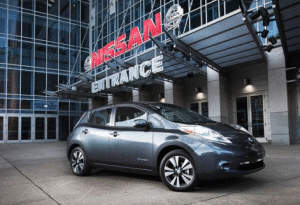 electric car. Flipping a switch turns the accelerator into an e-Pedal, where you get to accelerate, decelerate, and stop the car all on one pedal. That will include driving on hills, and will ease some of the burden of being stuck in traffic – with 90% of driving needs now being met on one pedal. The new feature comes from Nissan Intelligent Mobility, which is dedicated to transforming how cars driven, powered and integrated into society. More will be revealed on e-Pedal, along with several other interesting changes, during the new Leaf launch in September.
electric car. Flipping a switch turns the accelerator into an e-Pedal, where you get to accelerate, decelerate, and stop the car all on one pedal. That will include driving on hills, and will ease some of the burden of being stuck in traffic – with 90% of driving needs now being met on one pedal. The new feature comes from Nissan Intelligent Mobility, which is dedicated to transforming how cars driven, powered and integrated into society. More will be revealed on e-Pedal, along with several other interesting changes, during the new Leaf launch in September.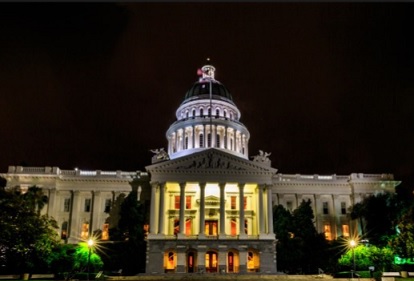 through when eight Republicans broke ranks and joined with Democrats to continue the program that came from AB 32; it requires companies to buy permits to release greenhouse gases into the atmosphere. Gov. Jerry Brown has been committed to adding the bullet train from Los Angeles to San Francisco, and bringing more electric vehicles and infrastructure to the state. Sources say there’s already more than $200 million available through the cap-and-trade auctions, now in their fifth year, that can go toward alternative fuels and infrastructure in the state.
through when eight Republicans broke ranks and joined with Democrats to continue the program that came from AB 32; it requires companies to buy permits to release greenhouse gases into the atmosphere. Gov. Jerry Brown has been committed to adding the bullet train from Los Angeles to San Francisco, and bringing more electric vehicles and infrastructure to the state. Sources say there’s already more than $200 million available through the cap-and-trade auctions, now in their fifth year, that can go toward alternative fuels and infrastructure in the state.